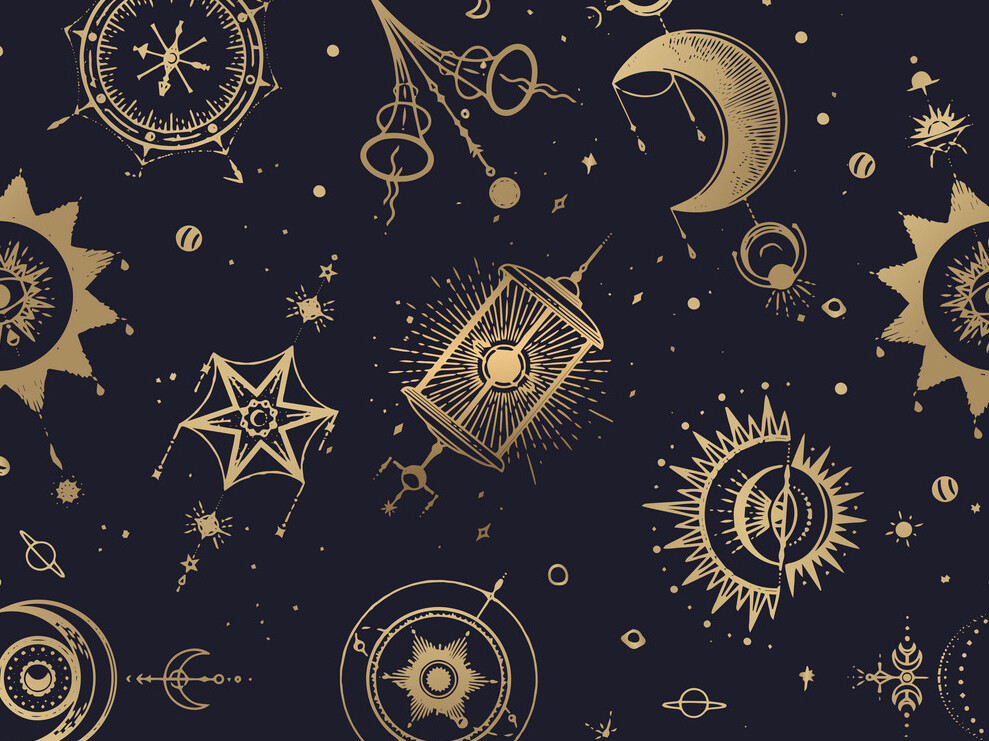
Difficult indeed to define the term “occult,” because practically everyone has a different interpretation of what the word signifies. It is a fascinating area of paranormal activity and mystery to some. It conjures up images of sorcery and evil intents in the minds of others. Although few people identify as occultists, many do, maybe without realising it. Those that are familiar with the term rarely use it because it is associated with so much negativity.
It’s a shame that occultism has been shrouded in such darkness, for it is a realm of wonder and gives many opportunities to enrich and appreciate life. The key to grasping the occult is to approach it without fear, prejudice, or a desire to use it for nefarious purposes. It’s a world of many facets, like a magnificent gemstone that provides a new perspective on things.
What is a Cult?
The link of “a cult” with “occult” is a widespread misunderstanding. Let’s start with “Cult” to get a better understanding of Occult.
A religious, spiritual, or philosophically fringe belief system that is formed, fostered, propagated, and/or enforced by a single charismatic leader. People who join cults are thought to be “brainwashed” or otherwise forced to stay with the organisation after being lured in by false promises or the group’s ideal appearance.
While this may be true for some cults, it’s just as possible that a cult is a small group of people who share a unique philosophy and choose to live, work, and worship together because they can’t find acceptance or contentment in mainstream religion or society. Because of the word’s negative connotation, the exact definition of what makes a “cult” is debatable.
A cult is a social group marked by unique religious, spiritual, or philosophical beliefs, or a shared interest in a particular individual, object, or purpose in modern English. This sense of the term is contentious, with differing definitions in popular culture and academia, and has long been a cause of debate among academics in a variety of fields. The term “cult” has a negative connotation.
An ancient definition of cult refers to a set of religious devotional rituals that are common in their culture, are linked to a certain figure, and are frequently associated with a specific location. This definition of the word is used in references to the “cult” of a particular Catholic saint or the imperial cult of ancient Rome, for example.
What is an Occult?
The exact meaning of the occult and what comprises occult practises can vary, but it generally translates to “that which is hidden.” The phrase was just coined in the last few centuries and has since been applied to a variety of behaviours and belief systems. The term “occult” is now commonly used to refer to issues such as Satanism, dark magic, witchcraft, and demonic summoning. Astrology, alchemy, kabbalah, divination, scrying, contacting or summoning angels and demons, ritual magic, certain historical secret societies or mystery cults, hermeticism, magic runes, talismans, some forms of mysticism, and esoteric religious practises are some of the topics covered in an academic sense. Obviously, that covers a wide range of topics.
Returning to the occult’s basic translation is a nice approach to characterise it. Genuine esoteric subjects have usually been kept hidden or only available to a select few. This is accomplished by the use of coded language and metaphor (see Alchemy), initiation (such as into a secret society), secret alphabets, specific tutelage from a master practitioner, or the preservation of an oral legacy that must be passed down through such a student-teacher dynamic (as Kabbalah was said to have been in its early iterations).
Knowledge was kept secret under the guise that it was too dangerous and powerful in the hands of the ignorant or unworthy. A person must be properly taught in order to safely perform the occult arts, just as they must be licenced before driving a car. Most people nowadays are unconcerned about accidentally summoning a demon. The desire to keep facts hidden is now attributed to tradition or the desire to appear “mysterious” or “dark.” While there are still many who believe in and perform the art, it is becoming increasingly rare.
There is also a contemporary trend of commercialising an occult or mystical aesthetic that is more concerned with appearances than with beliefs. There are also those who are somewhere in the middle; they may not consider themselves magi, but they do charge crystals and meditate with sincere intent. None of these viewpoints is inherently negative, but adequate knowledge on the subject is one of the goals of this website.
So, what does it mean to be “occult”? The response is contingent on the situation. The short answer, and how I would define the topic in relation to the content here, is that the occult is a diverse set of beliefs and practises that span all cultures and time periods in human history, and are characterised by their esoteric and spiritual nature, as well as their proclivity to be kept hidden from the general public for fear of persecution, misuse, misunderstanding, or to be misunderstood or to keep power by gaining access to information that isn’t widely known.
While modern technology and culture have made information on many subjects more publicly available, this was not always the case. The majority of knowledge was only available to a chosen few. It is less likely to be called “occult” if a topic is considered magical, mystical, or obscure but not necessarily restricted or secret. There are no clear and fast guidelines for defining what constitutes occult knowledge because the label has been retroactively attached to a lot of ideas and disciplines from the past.
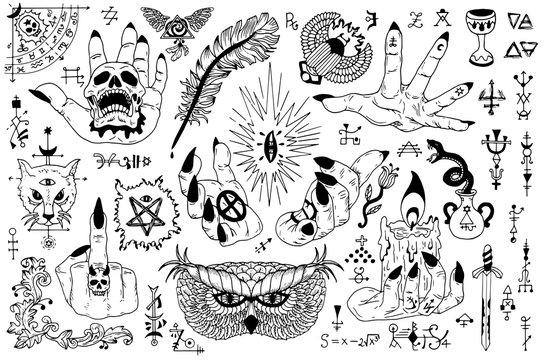
What is the Purpose of Occultism, Anyway?
I’m not sure when the word “occult” became to connote anything dark and frightening. I first observed it in the mid-1970s, when the spiritual movement as a whole seemed to take on a new tone, one of the needs of having to choose sides. This may have resulted in part from the surge in popularity of Satanic organisations, as well as the fast proliferation of new religions and cults throughout society. Many of these were established faiths that were widely practised in other countries, while others were revivals of ancient religions that had been assumed to remain dormant for a long time.
People began to regard numerous divination tools with a religious zeal, ascribing sacredness to the Tarot and other tools of the profession. This is a pattern that continues to this day. These individuals overlook the fact that the magic is within us and that the instruments are but a means to an end. As time went on, factions separated, with many attempting to discard uneasy thoughts by embracing only love and light, thus erasing reality. Some dubbed them “La La’s” at first, but these lovely souls gradually became the rule rather than the exception.
The necessity for the occult will decrease as modern technology grows more subtle. If I were in Paris and you were in Delhi and I wanted to give you an instruction, it would have been impracticable for you to walk down to Paris or for me to walk up to Delhi a thousand years ago, therefore I spent time learning my occult so that I could communicate this to you. I don’t have to do it now that I have a cellphone. I can still accomplish it, but it will take an inordinate amount of time to prepare you to be receptive enough – to be clear enough to receive it and not doubt it. I’d prefer to just phone you. Because current technology advances at such a rapid rate, the occult is becoming increasingly irrelevant.
When you manage to communicate without using Bluetooth, this is referred to as occult. It’s just a different level of technology, but it’s still tangible. You’re doing these things with your body, mind, and energy. Ultimately, you are simply using your body, mind, and energy, regardless of the technology. Normally, the other materials are used to assist you, but the primary material used to create a cellphone or any other piece of technology is simply your body, mind, and energy.
If you wanted to make a phone in the beginning, you had to utilise a lot of material. We are now working hard to minimise that number. We shall reach a point where we will no longer require any material — this will be occult. If there are even tiny modifications in our knowledge of what is what, modern science and the occult will inevitably collide.
The physical can be applied in a variety of ways. Take information technology, for example. What began as a stone tablet has now evolved into a small chip. What used to take an entire mountain to sculpt is now saved on a small chip. The physical has evolved into something more subtle. We term it occult when we use the subtlest degree of physicality.
Areas of overlap between occultism and science.
As a result, occultism reinterpreted antique, mediaeval, and early modern esoteric knowledge in a way that was sensitive to enframing’s epistemic needs. It did so by developing knowledge systems that emphasised hypothesis, relied more on language than proof, incorporated the supernatural into the natural world, and contradicted empirical science’s standards. It regularly grabbed the attention of early science fiction writers in this liminal scientific style.
Poe, Bulwer-Lytton, Corelli, and Bellamy all used occult scientific methodologies to produce rhetorical approaches to fiction that reframed the magical and supernatural with empiricist verisimilitude, a stylistic tactic that would go on to characterise the SF mode’s cognitive effect. They also took esoteric science and psychical research notions, ranging from telepathy to astral travel, and incorporated them into their fiction with such regularity and institutionalisation.
At the same time, there was a change away from the tightly entwined ‘one culture’ link between science and literature that existed at the time. Despite the fact that leading scientists such as Aldous Huxley and John Tyndall continued to publish books and articles with the goal of educating the public and advocating scientific methods and worldviews, a gap grew between professional scientists supported by established research networks and institutions and amateur, hobbyist scientists.
The latter was enthusiastic about the scientific method’s prospects for knowledge, but they were increasingly left to debate and discover through ‘popular’ media such as magazines and literature. 99 Periodicals and romances alike took advantage of the cultural and intellectual retreat of scientific debate into elite domains, aided by the fast rise in general literacy and education. Occultists and science fiction writers took advantage of the scientific enthusiast’s absence, joining amateur scientists in amusing, convincing, and confronting them with daring theories and unconventional knowledge claims.
Prior to the mid-nineteenth century, science fiction appears to have a number of notable and influential forerunners. Occultism has a longer history; despite the occult revival’s various modifications, there was as much continuity as change. Yet, in the latter half of the nineteenth century, a 26 convergence of social, cultural, and intellectual forces appear to have contributed to unusually rapid growth and gains in popularity for both Science Fiction and occultism, with implications that can still be felt today.
The shifting social function and position of science, increased literacy and education, and tensions between science and religion appear to have created ideal cultural conditions for the emergence of two movements that sought to scientise religion and sacralise science while exploring the full range of scientific hypotheses and imagining enchanted new technologies, species, and spaces in the process. Occultism, especially in the form of Although mesmerism and Spiritualism had a surge in popularity in the mid-century, the scope of public interest appears to have continued to grow around the time that the number of SF works began to rise in the 1870s.
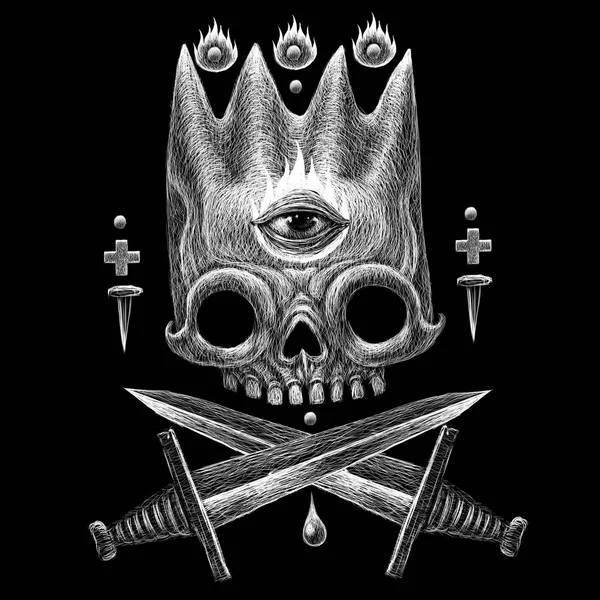
Occultism and spiritualism?
The occult is being misrepresented as a spiritual process in many parts of the world, which is not healthy. When we say spiritual, we’re talking about moving beyond the physical and bringing a non-physical experience into your life. Occult uses the most delicate physical phenomena, yet it is still physical.
Did Shiva practise occultism?
The necessity for the occult will decrease as modern technology grows more subtle. If I was in Paris and you were in Delhi and I wanted to give you an instruction, it would have been impracticable for you to walk down to Paris or for me to walk up to Delhi a thousand years ago, therefore I spent time honing my occult so that I could communicate this to you. However, now that I own a mobile, I’m not obligated to do that. I can still accomplish it, but it will take an inordinate amount of time to prepare you to be receptive enough – to be clear enough to receive it and not doubt it. I’d prefer to just phone you. Because current technology advances at such a rapid rate, the occult is becoming increasingly irrelevant.
People have heard about bad occultists who have attempted to harm people’s life, cause disease, or death, thus they believe the occult is always a bad thing. You may have just been exposed to that type of person socially, but the occult is also of the highest degree. Shiva practises occultism. The occult isn’t always a bad thing. The occult can be a beneficial force. It all depends on who is utilising it and what they want to do with it.
Occultism is simply a technology that has been abused. There is nothing nasty about science or technology. If, on the other hand, we begin to use technology to murder and torture people, it will appear that technology is a bad thing after a while. That is what happened to the occult because it was abused by too many people for personal gain. As a result, in the spiritual path, the occult is often avoided.
Is Occult Black magic?
Mysticism and occultism are two terms that are often used interchangeably.
The terms “mysticism” and “occult” are frequently confused. People mistakenly believe that mysticism entails the performance of magical acts. Adiyogi, the world’s greatest mystic, never did anything remarkable except reach out and converse with a few close friends. Like everyone else, he walked throughout the world.
The occult is mysticism’s younger brother, who outruns the gun and accomplishes it more quickly. It’s like if you’re slaving away in a university library, but your younger brother has amassed a fortune and is living the high life at the age of 18 after joining a local gang. But he’ll take you someplace you don’t want to go, and you can wind up in a place you don’t want to be — either in prison or dead. You could say the occult is mysticism’s wild younger brother. The occult is right there if you look down from the mystical road, but you don’t go after it because you’re heading in the wrong way.
For most of the people who live here, India’s vast and diversified culture makes most of the cultural practises that take place more intangible. We are all emotional beings, and we would always be driven by our emotions if we didn’t have a rational intellect. We doubt logic most of the time, but when logic fails to provide us with sensible explanations, we look to other realms of reality for stability and ego pleasure. It’s simpler for external influences to soak through and justify our overall inquisitiveness when we turn the other way and defy rationality.
All I’m trying to say is that our emotions can sometimes allow forces to mould us in ways that appear more comfortable, and we can get carried away with it. Black magic and occult rituals are examples of things that lead us far away from reality in order to create a safe haven for us.
Black magic is a form of magic that preys on people’s fears and causes them to find hope and affiliation with something that is much beyond their comprehension.
I’m not here to pass judgement on the practice in any manner. I’m here to provide an impartial third-party opinion on what this art includes and whether there is any research to back up these practices. We live in a world that is divided into two parts. That is to say, everything we see, hear, understand, and do has a dualistic aspect to it. There is, for example, good and evil, joy and sorrow, and, of course, light and dark. Black magic is the comprehension of all the negative aspects of this duality and the use of that negativity to one’s advantage in order to harm others through cultish activities.
All negative forces are attracted to black magic, and they become easier to control as you practise these evil arts. Many occult practises that deal with black magic worship or believe in the devil and his various manifestations, such as demons, bad spirits, and dark creatures.
This type of magic is believed to have extraordinary exuberant control. It is said that if you are a victim of this practice or have it done to you, it takes a certain period of time to recover from the effects it can have on you. And, for the most part, the result is negative. People who engage in this vicariously dark sort of entertainment frequently do so in order to solve their own difficulties and construct a better path for themselves and their future.
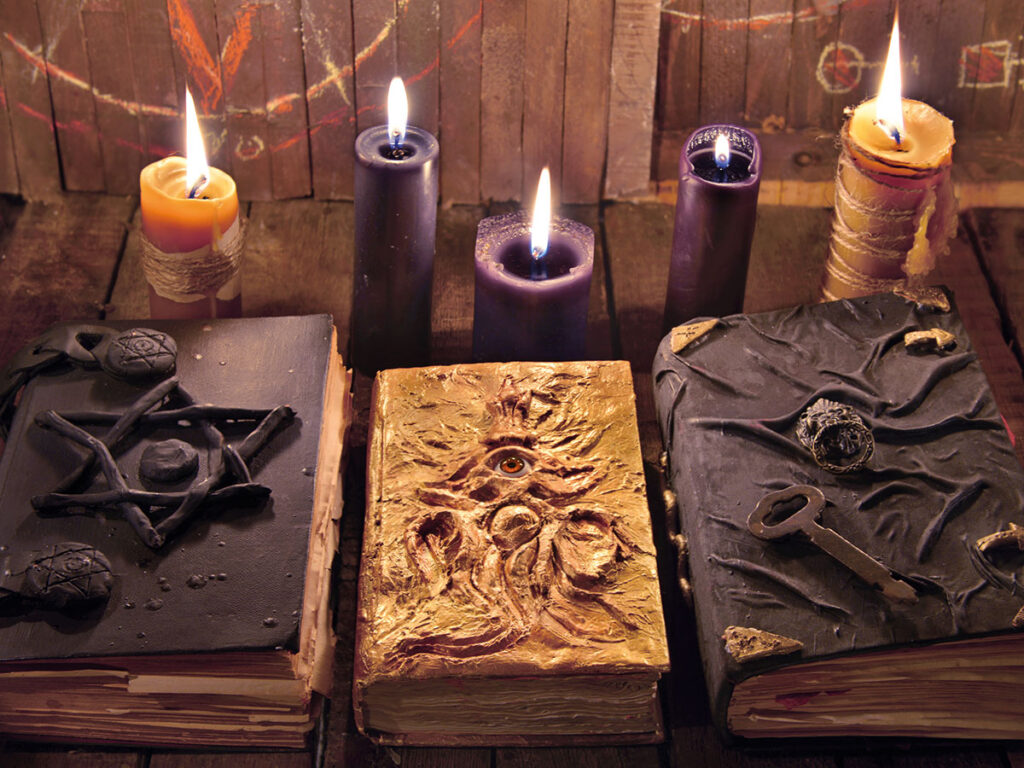
Conclusion:
Occultism is simply a belief (or experimentation) in alternate ways of seeing the world, beliefs that may or may not be accepted or understood by the culture in which one lives. The occult is a flexible and ever-evolving philosophy. We learn truths and uncover lies through digging into the occult. We discover mental patterns and ways of illuminating the darkness that is as unique as our DNA. Just as no two people can ever experience the occult in the same way, no two people can ever define it in the same manner. The occult is a personal and one-of-a-kind experience that is well worth the journey. Don’t be afraid of it; embrace the unknown.
Disclaimer: The author’s views are his or her own. The facts and opinions in the article have been taken from various articles and commentaries available in the online media and Eastside Writers does do not take any responsibility or obligation for them.
Note: Contact our Writers at www.eastsidewriters.com for writing Blogs/Articles on any niche. We have experts in various domains from Technology to Finance and from Spirituality to Lifestyle and Entertainment.
Originally posted 2021-12-27 05:55:44.




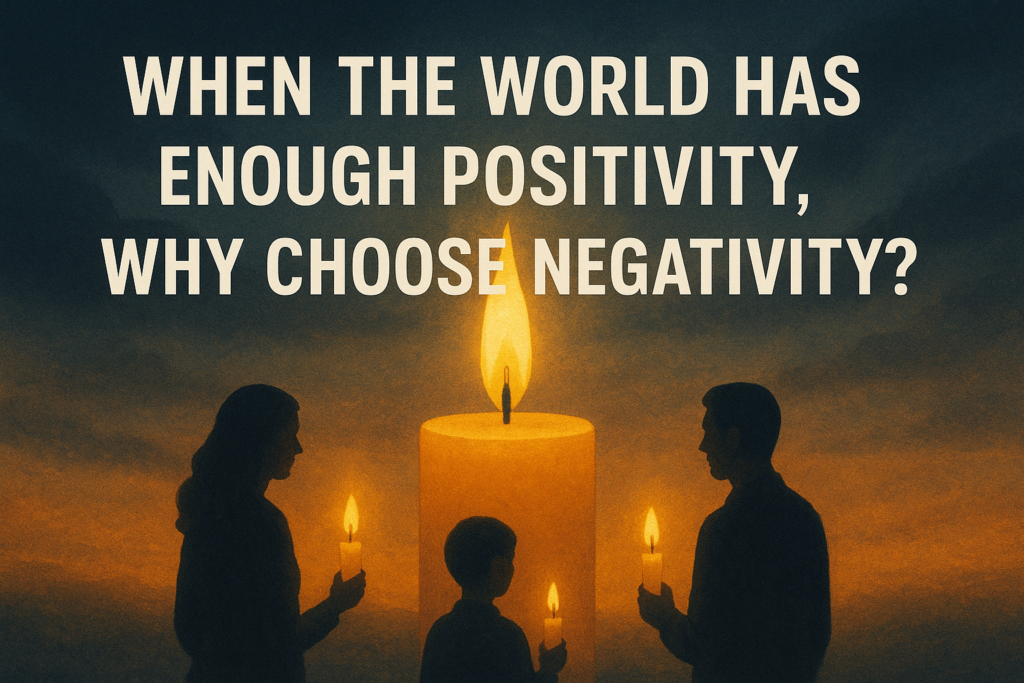

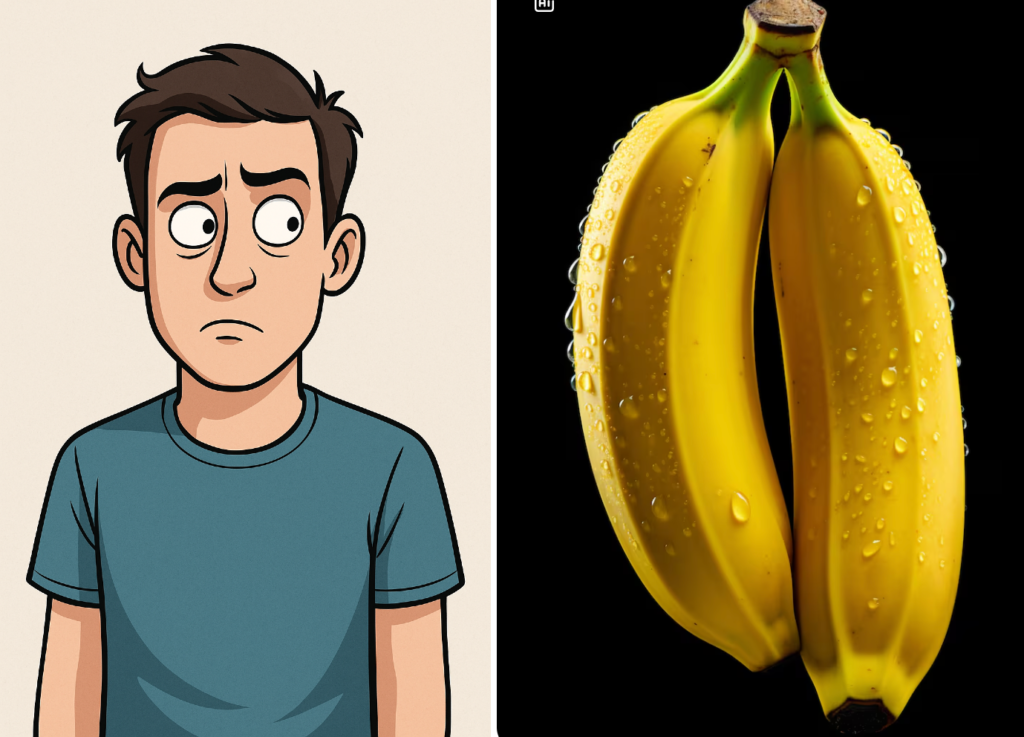
Pingback: Does-astrology-work-for-human-benefit